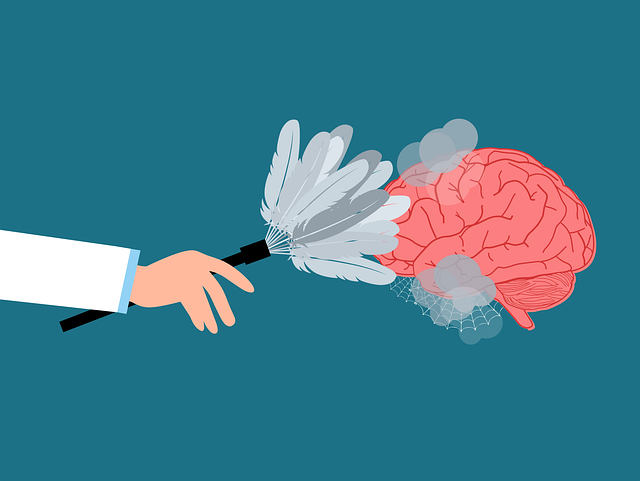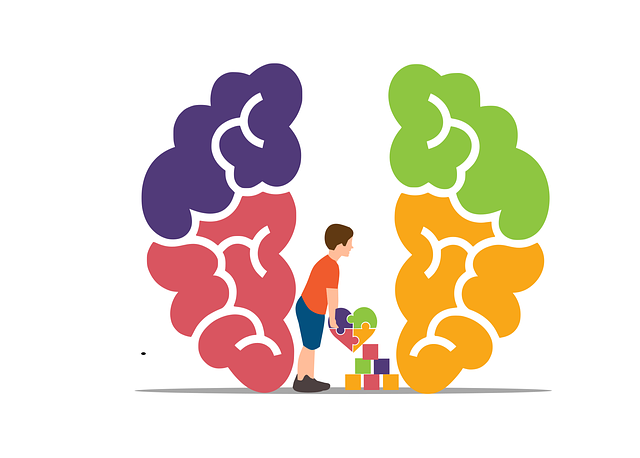Longmont Neuro Disorders Therapy offers specialized crisis intervention team (CIT) training, emphasizing self-awareness, resilience building, and effective communication strategies. Their comprehensive programs equip individuals with tools for de-escalation and care management, preventing escalating crises and enhancing community support. Through interactive workshops and real-life scenarios, Longmont Neuro Disorders Therapy fosters mental wellness coaching, empathy, and confidence, strengthening communities' overall resilience and reducing caregiver burnout. Continuous training ensures teams are prepared to handle neurodisorder emergencies effectively, promoting better outcomes in mental health crises.
“Crisis intervention teams (CITS) play a pivotal role in supporting individuals and communities during crises, ensuring swift and effective help. This article explores the crucial role of specialized training programs, with a focus on the expertise offered by Longmont Neuro Disorders Therapy. We’ll delve into the essential components of CIT training, its profound impact on individuals and societies, and practical strategies for implementing and sustaining these life-saving initiatives. Understanding and enhancing crisis intervention capabilities is key to fostering resilient communities.”
- Understanding Crisis Intervention Teams: A Vital Resource for Community Support
- The Role of Longmont Neuro Disorders Therapy in Training Programs
- Essential Components of Effective Crisis Intervention Team Training
- Benefits and Impact on Individuals and Communities
- Implementing and Sustaining Crisis Intervention Team Training Programs
Understanding Crisis Intervention Teams: A Vital Resource for Community Support

Crisis Intervention Teams (CITs) are a vital resource for communities, offering crucial support during times of crisis. These teams consist of trained professionals who swiftly respond to individuals experiencing severe emotional distress or mental health challenges. At Longmont Neuro Disorders Therapy, we recognize the importance of CITs in fostering safer and more supportive communities.
Our commitment to Mental Health Awareness drives us to provide not only Social Skills Training but also focus on Inner Strength Development for both team members and those they serve. By equipping individuals with the necessary skills and knowledge, CITs can de-escalate situations, offer immediate assistance, and connect people with ongoing care. This proactive approach is transformative, preventing crises from escalating and empowering communities to better handle challenging circumstances.
The Role of Longmont Neuro Disorders Therapy in Training Programs

Longmont Neuro Disorders Therapy plays a pivotal role in crisis intervention team training programs. Their expertise lies in providing specialized techniques that empower individuals to handle high-stress situations effectively. Through innovative methods, they integrate Self-Awareness Exercises into the curriculum, enabling participants to recognize and manage their emotional responses during crises. By fostering better self-awareness, these exercises enhance decision-making capabilities under pressure.
Furthermore, Longmont Neuro Disorders Therapy focuses on Resilience Building and Communication Strategies. They teach participants how to maintain composure in challenging environments, promoting calm and controlled interactions. Effective communication strategies are crucial for de-escalating tense situations, ensuring that crisis intervention teams can collaborate seamlessly and offer compassionate support to those in need.
Essential Components of Effective Crisis Intervention Team Training

An effective crisis intervention team training program is a multifaceted approach that equips participants with the skills and knowledge to handle critical situations sensitively and efficiently. At Longmont Neuro Disorders Therapy, we recognize that every team member brings unique perspectives and experiences, which is why our programs prioritize mental wellness coaching as a foundational element. Through interactive workshops and real-life scenarios, trainees learn not only empathy building strategies but also effective communication techniques to de-escalate tensions and support individuals in crisis.
Moreover, successful training goes beyond individual development. It fosters collaboration and coordination among team members, ensuring everyone understands their roles and responsibilities during a crisis. Incorporating self-esteem improvement exercises helps participants maintain resilience and composure under pressure. By integrating these essential components, our training programs prepare teams to offer compassionate, effective, and timely interventions, ultimately enhancing the well-being of those they serve.
Benefits and Impact on Individuals and Communities

Crisis intervention team training programs offer profound benefits to both individuals and communities. For those facing neuro disorders, such as Longmont Neuro Disorders Therapy clients, these initiatives can be life-changing. Participants gain invaluable skills in stress reduction methods, enabling them to manage challenging situations with enhanced calmness and clarity. This not only improves their personal well-being but also facilitates better care for others, making it an essential tool in preventing burnout among healthcare providers.
Moreover, crisis intervention training fosters a sense of confidence boosting, empowering individuals to take charge during crises. In the context of communities, these programs help build resilient networks where members are equipped to support one another during difficult times. By integrating effective burnout prevention strategies for healthcare providers, such as those offered in Longmont Neuro Disorders Therapy settings, communities can ensure that their caregivers remain healthy and effective, thereby enhancing overall community resilience.
Implementing and Sustaining Crisis Intervention Team Training Programs

Implementing and sustaining crisis intervention team training programs is a multifaceted process that requires strategic planning and commitment from all stakeholders involved. At Longmont Neuro Disorders Therapy, we recognize that equipping individuals with effective coping skills is paramount in mitigating the impact of neurodisorders and promoting resilience. Our comprehensive training programs are designed to enhance the capabilities of crisis intervention teams, focusing on both technical knowledge and emotional intelligence.
Through interactive workshops, simulations, and ongoing support, participants learn evidence-based strategies for managing acute crises and fostering a supportive environment. This includes mastering mood management techniques, stress reduction methods, and coping skills development tailored to the unique challenges posed by neurodisorders. By investing in continuous training and creating a culture of preparedness, crisis intervention teams can consistently deliver high-quality care, ensuring better outcomes for those facing mental health emergencies.
Crisis intervention team (CIT) training programs, enhanced by the expertise of organizations like Longmont Neuro Disorders Therapy, play a pivotal role in equipping communities with vital resources. By focusing on understanding crisis situations, identifying at-risk individuals, and providing effective interventions, these programs empower citizens to make a tangible difference. The benefits extend far beyond individual support; they foster safer, more resilient communities. With consistent implementation and sustained commitment, CIT training can revolutionize how we respond to and prevent crises, ensuring better outcomes for all.










